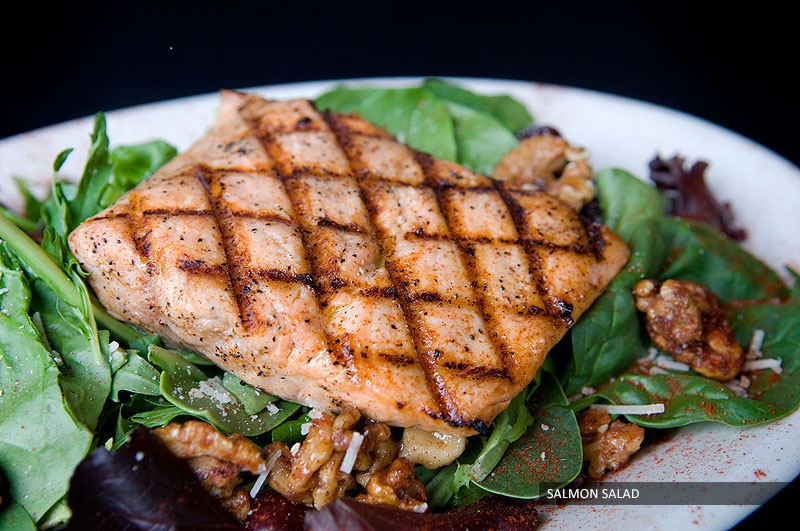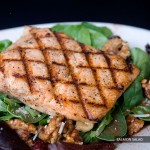Structuring what you are going to eat around your workouts is a wonderful way to boost performance and improve overall results from your training. There are no magic formulas here, but rather solid whole-food nutrition based principles that will support your regimen in the best way possible.
Ideally, you want to be consuming foods that raise energy levels, boost muscle tissue repair, activate metabolic rate, stave off hunger, optimize body composition, and taste delicious.
Here we will dive into what to eat and what to avoid around times of exercise.
First, calculate/set your target Protein goal, and spread it out over the day’s duration into appropriately portioned meals. This is very important because consuming adequate protein will raise metabolic rate, reduce hunger, repair damaged muscle and other tissues in the body, and also enhance nutrient utilization and thermic activity within the body.
Spreading your protein intake out over the course of the day so that you get around 30 grams of protein per meal (depending on your size/goals/etc), will maximally activate protein synthesis to build and repair lean muscle, and provide a significant boost in metabolism. It has been shown that consuming a high quality protein meal at breakfast, lunch, and dinner resulted in 25% greater protein synthesis than when subjects ate most of their protein later in the day. A high quality protein will typically have at least 10 grams of Essential Amino Acids per serving.
Optimal Protein sources to eat prior to working out include: Beef (preferably grass fed), Fish (preferably wild caught), Ground Turkey or whole Chicken Breast, (preferably free range organic), & Eggs (free range organic). These protein sources are very bio-available, offer key nutrients, and provide an optimal amino acid ratio. In addition, these protein sources do not contain nutrients that are known to cause gut distress, which is definitely not preferable during a workout. Having a solid source such as the ones mentioned will also lead to a steady release to provide sustained energy. Typically eating an hour to two prior to exercise works very well (depending on individual characteristics, the time may be shorter or vary within that time frame). However, we don’t want to be in the midst of digesting when we are trying to train, so allow sufficient time to allow the body to start breaking down the nutrients.
Proteins to avoid prior to working out would be sources that contain problematic nutrients such as beans and fatty animal products. Beans may lead to gastrointestinal disturbances, and extremely fatty meats and/or animal products bacon, cheese, etc contain large amounts of saturated fat, which takes a longer time to digest and can be problematic when aiming to perform at a high level.
However, as stated before, don’t be afraid of Fat! Consuming healthy fats (such as contained in fish, lean meat, nuts, avocadoes, eggs, etc) will provide a dense energy source, and will actually benefit your fat-loss goals. You may have heard the phrase “you need fat to burn fat”, and it is entirely true. To trigger the utilization & burning of fat for fuel, you must consume significant healthy fats with your protein (about half the amount in grams of fat per grams of protein within meal & could go higher). The basic premise is to consume healthy fats with protein (no carbs) in the meals preceding your workout, then re-fuel on lean protein & carbohydrates post-workout (preferably in the evening). Typically, you would not want to combine significant amounts of fat with significant amounts of carbs in a given meal but there are always exceptions to that rule of thumb. Prior to working out, some added Coconut Oil will provide a quick-acting dense energy source via the Medium Chain Triglyceride (MCT) content, which bypasses digestion and is rapidly utilized as fuel (unlike a typical fat). Omega-3 fats (such as found in salmon and high quality fish oil) are also recommended to reduce inflammation and enhance blood-flow.
As mentioned in other articles, carbohydrates are not absolutely necessary pre-workout, especially if you are trying to improve body composition. Despite what you may have heard, the body does not require constant intake of carbs for energy production. In fact, consuming carbs in excess will actually blunt your ability to utilize them and can progress to desensitization of cell receptors and insulin resistance, as well as significant fat gain. As long as you are not on an extremely low-carb diet and/or over-expending, your muscle glycogen levels will be adequately supplied and you will have plenty of energy for your workout. Moreover, you will likely experience heightened focus and increased power output due to factors such as neurotransmitter levels, enhanced ability to utilize naturally produced adrenalin, and easier access to intramuscular glycogen without the presence of circulating glucose & insulin within the bloodstream. Consuming carbohydrates before your workout will also significantly blunt fat-burning ability during training. Saving your carbs for post-workout or in the evening will allow them to be utilized much more efficiently, and will refill glycogen stores very efficiently and aid in recovery, as well as reduce levels of the stress hormone cortisol. So unless you’re an endurance athlete or performing very high-volume training, carbohydrates are not necessary pre-workout.
To replenish glycogen levels post-training, there are quite a few great options. Starchy foods such as sweet potatoes, red potatoes, rice, & other whole grains are wonderful choices, and even some higher glycemic fruits like watermelon, kiwi, & pineapple can be utilized. Make sure to include a quality protein source along with the carbohydrates, such fish, chicken, lean ground turkey, etc. Ideally you want something that is rather quick and easy to digest after working out…and although this discussion is mainly covering whole food sources, I will mention that free form BCAA’s (Branched Chain Amino Acids) and EAA’s (Essential Amino Acids) are a wonderful addition to kick-start recovery post training.
Hope this information provides some insight into how to optimally structure your nutrition around working out. After all, what we fuel ourselves with is one of the top most important aspects of making appropriate progress in the right direction. Remember, you are limitless in your abilities, and can achieve whatever you set out to do! Until next time folks, be well.
#strive2optimize




